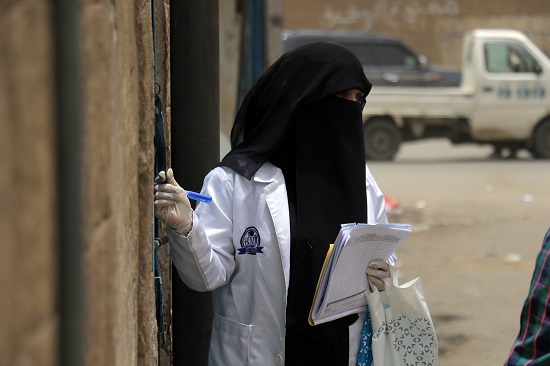 13 November 2019 – In a non-permissive environment replete with operational and security challenges, the expansion of the national electronic disease early warning system (eDEWS) in Yemen to identify and quickly control infectious disease outbreaks is nothing short of a miracle.
13 November 2019 – In a non-permissive environment replete with operational and security challenges, the expansion of the national electronic disease early warning system (eDEWS) in Yemen to identify and quickly control infectious disease outbreaks is nothing short of a miracle.
Even in the middle of active conflict, WHO, through its Emergency Health and Nutrition Project (EHNP) partnership the World Bank, successfully revamped and expanded Yemen’s existing eDEWs system, transitioning it from a paper-based system into a centralized, electronic reporting system.
New sentinel sites are added each year to cover more areas across the country and protect people from deadly outbreaks. In this way, WHO and partners are able to better monitor the occurrence of disease outbreaks and quickly respond to them before they place already vulnerable people at even greater risk.
Across Yemen today, there are 1991 active sentinel sites that are detecting and electronically reporting on 28 different highly pathogenic diseases such as cholera, dengue, viral haemorrhagic fever, measles, pertussis and acute flaccid paralysis. This is a significant increase from 400 sites that existed in 2015 at the start of the crisis, reporting on only 16 diseases.
Today, more than 90% of all sentinel sites provide reports that are both accurate and timely, strengthening infectious disease prevention in communities, and protecting the country’s fragile health system. In 2019, 78 011 disease alerts, were received through the eDEWS system that were verified and investigated by the eDEWS coordinators and district rapid response teams to early detect and contain any potential outbreak.
The establishment of eDEWS is a critical component of a much larger effort by WHO, UNICEF and the World Bank to operationalize the humanitarian development nexus—ensuring acute health needs are met while simultaneously safeguarding the protection of Yemen’s health system.


